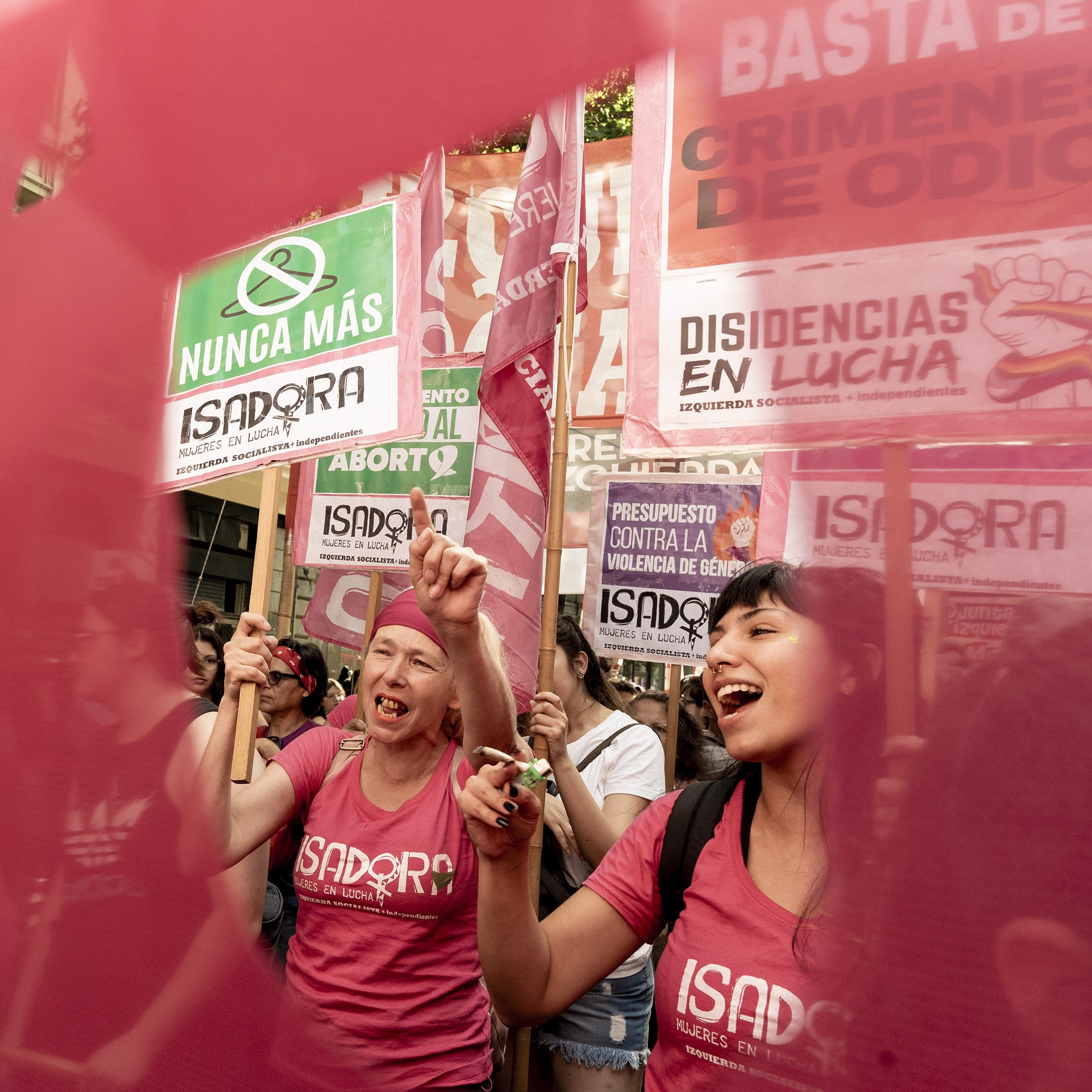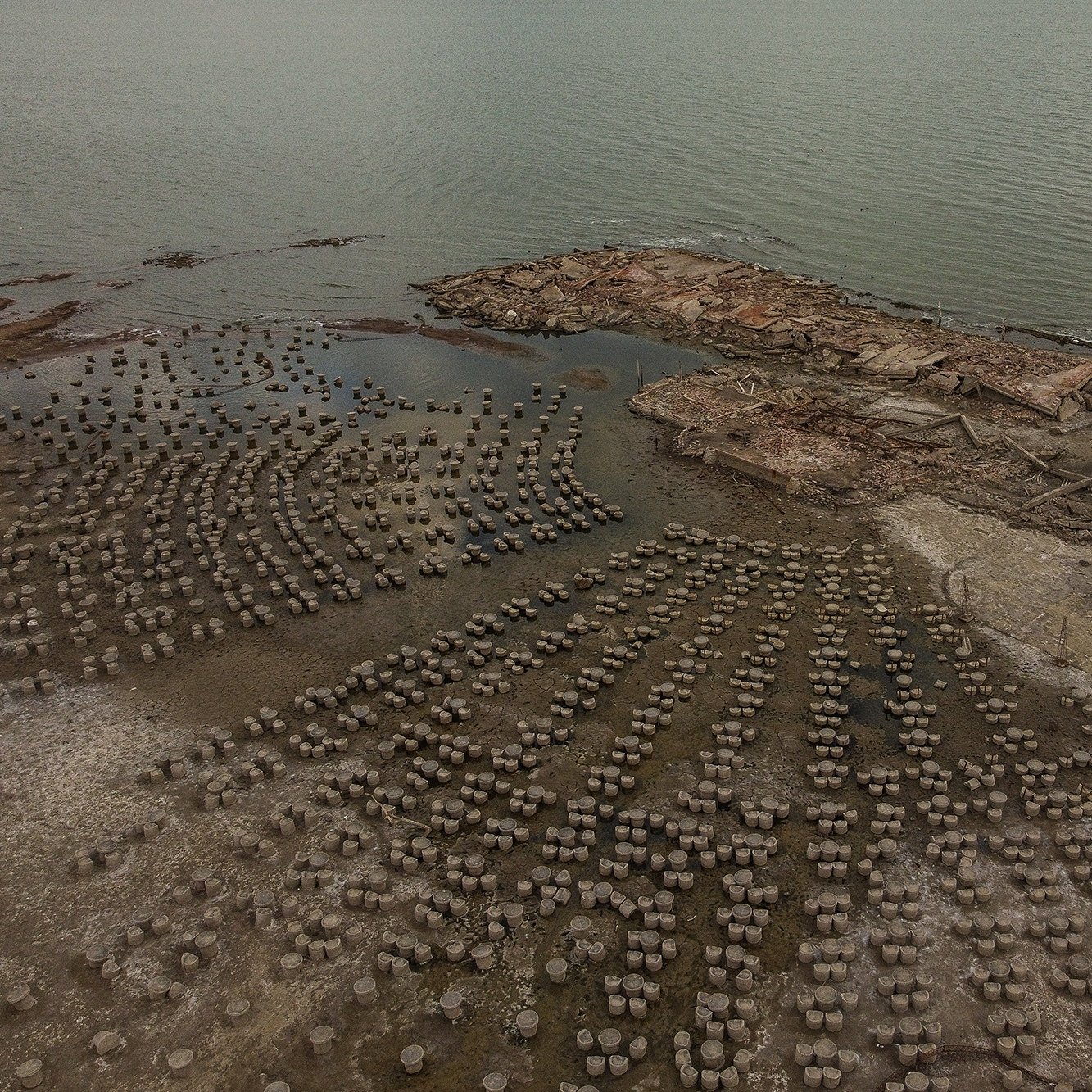Milei’s Money
The Argentinian president looks to dollarize the economy.
MARCH 28, 2024
TEXT BY LUCÍA CHOLAKIAN HERRERA & PHOTOS BY SEBASTIÁN LÓPEZ BRACH
Since he assumed office in December, Argentinian President Javier Milei, an anarchocapitalist libertarian, has devalued the Argentine peso by 54 percent, laid off thousands of public workers, reduced infrastructure and public works across the country, eliminated social welfare programs, stopped the distribution of food to community centers and soup kitchens, removed price controls affecting gas, healthcare, food, and energy, and ended subsidies to public transport and tariffs.
Almost every day, Argentines wake up to a new measure that empties their pockets. This is what Milei promised during his presidential campaign, when he told Argentines that everything would get worse before they started getting better. A staggering 56 percent of voters chose him, and, according to current polls, most of them continue to do so.
In December, Milei signed an executive order deregulating residential rent prices. Millions saw the prices of their homes increase to unpayable rates. The same happened with healthcare, the cost of which has increased by over 100 percent only in the first three months of 2024.
Pensioners, on the other hand, try to find work on apps like Uber to try to make ends meet. (The minimum pension payment in Argentina is just over $100 per month.) Nine out of ten citizens, analysts say, have reduced their spending; two out of three have cut back on food purchases
Milei, an economist, became popular as a TV pundit about a decade ago. In 2021, he gained a seat in the Lower House, an eventual stepping stone to the presidency. All along, he has advocated for a dollarized economy, the elimination of all currency controls and inflation, promising that this path could make Argentina as prosperous as any European country within a few decades. But to get there, Milei warned, Argentines would need to undergo a series of painful policies.
Today, they are experiencing them. Under Milei’s watch, the economy has plummeted. Over the last several months, the Argentinian poverty rate has jumped from 44 to 57 percent. Food prices are on the rise, and year-over-year inflation is over 270 percent.
Last week, the National Statistics Institute released a survey that showed that the average salary in Argentina, today at a little over $500, is below the poverty line. While most Argentines are employed, jobs don’t guarantee that they can cover basic needs.
“Regardless of how and whom, no single conversation in today’s Argentina is complete without its section on how expensive everything is, with comparisons between healthcare prices, school fees, or the increase in rental prices,” writer and philosopher Tamara Tenenbaum recently wrote in her Sunday column in the newspaper El Diario AR.
On a recent Uber ride, my driver, a 67-year-old pensioner, dissected his family spending and income as he drove me through a thunderstorm. He told me that Argentina needed a change, that he feels let down by the president: “Milei said he’d go after the most powerful, but so far he’s only chased down people like me.”
Women cook for hundreds of people in the streets of the city of Rosario during the national day of protest against the food emergency in the country’s poor neighborhood soup kitchens. In the city of Rosario, there are around 500 soup kitchens in marginalized neighborhoods, serving between 200 and 700 families each. For some months now, food shortages and the government’s lack of response have been endangering thousands of families in the country.
In a store, a sign that says “You don’t ask me for credit, if you don’t have money buy it somewhere else.”
A retailer places tickets with new prices on top of the old ones, due to constant price increases.
Posters in favor of Javier Milei during his visit to the city of Córdoba.
Javier Milei’s car is accompanied by thousands of followers during his visit to the city of Rosario.
Price-labeling machine used in markets to change product prices. Sustained devaluation has a negative impact on prices that fluctuate daily.
Charo Dontico (30) next to a tower of toilet paper rolls. Argentinians stock up on large product quantities before prices increase.
Priceless signs. In various shops, it’s common not to see displayed prices, and this is due to the constant increases in merchandise.
A street vendor selling fruits and vegetables. Argentinians opt to do their shopping in smaller markets or even on the street, which offer more affordable prices than large supermarkets.
Marcelo owns a butcher shop that displays its products at dollar prices. After the devaluation, some bars and markets in the city are offering their products or services directly in dollars.
One hundred dollars are equivalent to one hundred thousand Argentine pesos on the black exchange market. One of the most direct consequences of peso devaluation is inflation. When the value of the peso decreases in relation to the dollar, products become more expensive, causing prices to rise across the board. This affects consumers by reducing their purchasing power.
This piece was updated on March 29, 2024.















